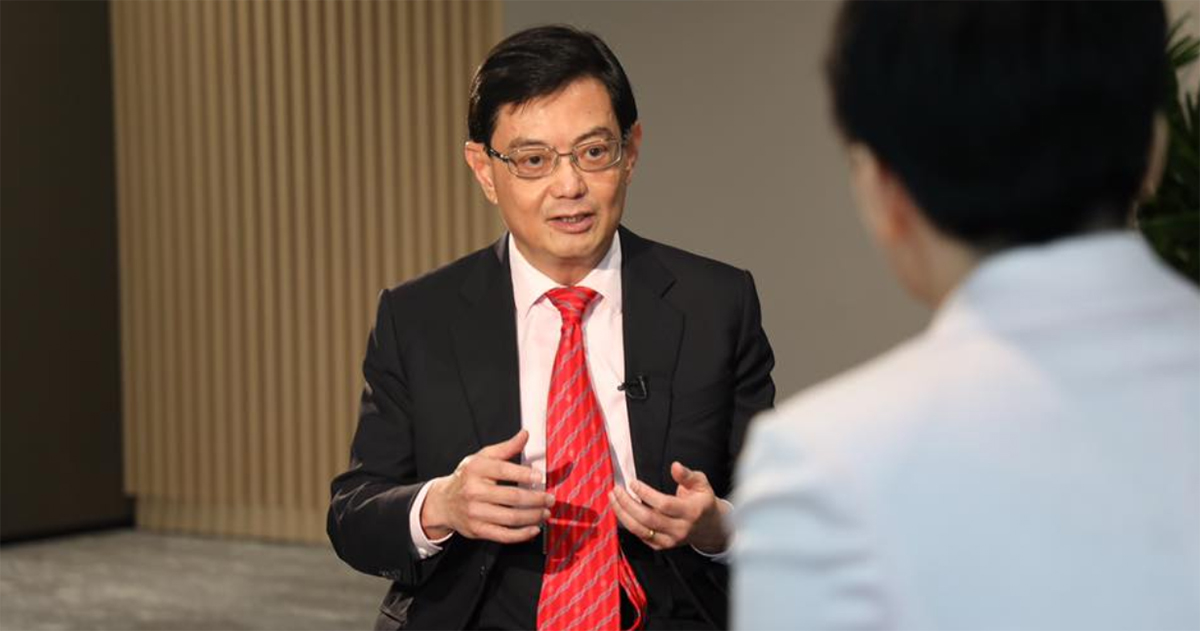REPORTING FROM TOKYO
Deputy Prime Minister and Finance Minister Heng Swee Keat provided three key ideas on how the world can arrive at yet another stable global order, amid the rising tensions between the United States and China.
The three ideas are:
1) The U.S. and China will need to work out a new model of constructive cooperation.
2) The rest of Asia must take on greater responsibility in shaping the global order.
3) Asia and the international community must continue to work together to tackle global issues confronting all countries.
Heng made the rallying call to all countries, saying that working together "can only be realised if we are part of one globalised system".
He said that the U.S. and China have to work together, adding that a globalised system will "not work if the world is fragmented into two blocs".
Heng was in Tokyo to deliver a keynote address at the Nikkei conference, also known as the International Conference on the Future of Asia.
It is the second time he is attending the Nikkei conference since its inception in 1995.
Last year, Heng accompanied then Deputy Prime Minister Teo Chee Hean, who was Singapore's representative.
The theme this year is "Seeking a New Global Order – Overcoming the Chaos".
The conference in its 25th year and has been held annually since 1995.
Three ideas for a new stable global order
1. A model of constructive cooperation between U.S. and China
Heng said that the starting point for a new model of constructive cooperation between the U.S. and China is "to accept new realities".
He is hopeful that it is "still possible for both sides to resolve their differences", as a trade war is to no one’s benefit.
The context of U.S.-China tensions is fundamentally different from the Cold War, as the U.S. and the Soviet Union hardly had any trade across the Iron Curtain.
Heng cited the iPhone as an example of how global value chains are highly integrated.
Heng said:
"Designed in the US, assembled in China, but with display screen from Korea, camera from Japan, processors from Taiwan, and circuit board components from the US, UK and Germany. Like so many other products, the iPhone is really “Made in the World”."
To accept new realities, Heng said the U.S. needs to:
i) adjust to China’s emergence as a major global player;
ii) recognise that while China is a competitor, it is also a valuable partner, which can share the responsibility of providing international public goods;
iii) accept that it has no better option but to work with China, because trying to contain it will result in worse outcomes;
iv) and strive for a new equilibrium with China.
On China’s part, Heng said that it needs to accept that its increased strategic and economic weight comes with greater international responsibility.
Hence, Heng said:
i) China’s Belt & Road Initiative is a positive step in this direction;
ii) It now needs to convince sceptics it will do so after it said that it will continue to open up;
iii) China needs to demonstrate that its peaceful rise will indeed benefit the rest of the world, including the U.S.
iv) China has to be prepared to shoulder additional international responsibilities.
2. Rest of Asia to take on greater responsibility in shaping the international order
Heng said that the current moment is an opportunity for Asia to shape an international order in a way that will
support the development and stability of Asia and the world.
Heng cited multilateral trading agreements, such as the recently concluded 11-country Comprehensive and Progressive Agreement for Trans-Pacific Partnership (CPTPP), and the Regional Comprehensive Economic Partnership (RCEP) as examples.
Importantly, this will "see more room for Japan, the third largest economy in the world, to play a bigger role in deepening regional development and integration".
Heng mentioned how Asean is also doing its part to keep the regional architecture rules-based, open, inclusive and Asean-centric.
3. International community to come together to tackle global issues confronting all
Heng’s third and final point is to request everybody to step up and tackle the global issues.
These include tackling global warming and climate change, improving food security and access to clean water, reducing poverty and the risk of pandemics, and preventing nuclear proliferation and terrorism.
Three-day working visit to Japan
Heng is on a three-day working visit to Tokyo from May 29 to 31.
During his visit, Heng will meet Japanese Prime Minister Shinzo Abe, DPM and Finance Minister Taro Aso, as well as Foreign Minister Taro Kono.
He is accompanied by officials from the Ministry of Finance and the Ministry of Foreign Affairs.
Top photo from Heng Swee Keat Facebook.
If you like what you read, follow us on Facebook, Instagram, Twitter and Telegram to get the latest updates.
